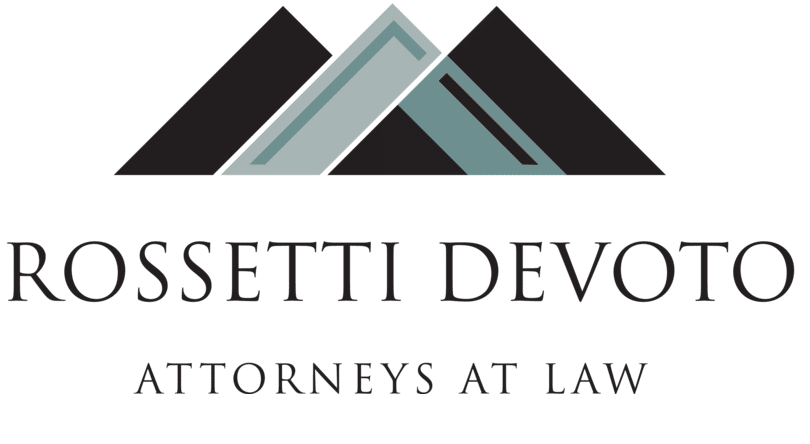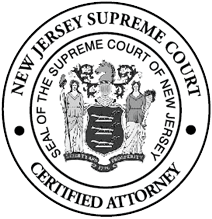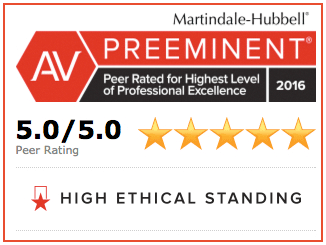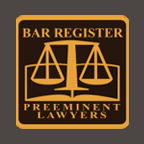Medical Malpractice FAQs
1. What is Medical Malpractice?
Medical malpractice (or medical negligence) is the term applied to doctors, nurses, hospitals, HMO’s, nursing homes and/or their employees whose medical treatment deviates or is below the commonly accepted standard of care and treatment.
2. What should I do if I think I have been a victim of medical malpractice?
If you think you have been a victim of medical malpractice, you should immediately make a diary of the events including the witnesses, doctors, nurses, etc. who were involved in your treatment. You should also see a lawyer who is experienced in medical malpractice cases as soon as possible since certain notice and time requirements must be followed before you can file a lawsuit.
3. How do you prove that a doctor, nurse, HMO, hospital or nursing home has committed malpractice?
In medical malpractice cases, just like in other negligence cases, the injured person must prove four elements to recover against a negligent doctor, nurse or medical institution. The four elements are:
- Establishing the duty of care. That is, proving that the person you say is negligent had a duty to treat and care for you in a certain manner. This is generally established through an expert doctor who will testify in court as to the standard of care that the doctor, nurse or medical institution should have followed. By way of analogy, it’s like establishing that a car driver has a duty to drive on the right side of the road and stop at red lights.
- Breach of the standard of care. Before a doctor, nurse or medical institution can be negligent, there must generally be expert testimony that there was a deviation or breach of the standard of care. In other words, the expert must testify that somebody did something wrong.
- Causation. In a general sense, causation means: Was the negligent care that you received a CAUSE of your injury. Said another way, would you have wound up with the same result even if there was no negligence. This element can be highly complex and is often hard-fought.
- Damages. In every case, there must be some damages that resulted from the negligent treatment. These damages can consist of physical and mental pain and suffering, medical bills, lost wages, disability and impairment and others.
4. Do I have a right to obtain copies of my medical records?
Yes. You have a right to receive copies of your medical records. Simply request in writing that you are authorizing the doctor or medical institution to supply you with a copy of your medical records and provide them with a return address. New Jersey Administrative Code, Section 8:43G-15.3 requires that legible copies of medical records be produced within thirty days. The Code also states the copying charge is not to exceed $1.00 per page and a maximum of $200.00. If you are obtaining the records on behalf of a deceased person, you may need to be appointed as the Executor and/or Administrator of the estate before the records will be released.
5. How much time do I have to bring a malpractice lawsuit?
Each case is different and requires special advice which you must seek immediately if you think you have a medical malpractice case. A good rule of thumb is that you have two years from the date of the malpractice. However, because people often do not know they have been a victim of malpractice when it occurs, an exception known as the “discovery rule” can extend the two year limitations period to allow a person to file a lawsuit two years from the date they knew or should have known of the malpractice. For example, if you had a surgery and did not know nor could you know the doctor left a knife in your body until three years later, you might have two years from the date you discovered that the knife was inadvertently left in your body. Many different factual scenarios exist which impact how long you have to file a lawsuit, including cases involving minors and death cases. If you think you have a potential medical malpractice lawsuit, you must see an attorney immediately for advice on when to file suit.
6. Are state-owned hospitals and doctors, nurses, and other employees of the state of New Jersey entitled to special notice of my intention to bring a lawsuit against them?
Yes. State-owned hospitals and medical facilities as well as state-employed doctors, nurses and other state employees are all entitled to Notice of your intention to file a lawsuit against them within 90 days of the malpractice. If you believe that you have been a victim of malpractice, you must see a lawyer immediately to make sure you give the proper Notice of Tort Claim or your case may be barred.
7. How serious does an injury have to be before I can bring a malpractice lawsuit?
In New Jersey, there is no legal requirement as to the seriousness of an injury before you can bring a malpractice lawsuit. However, as a practical matter, because of the large costs involved in obtaining medical records, retaining medical experts, conducting depositions, and creating trial exhibits, etc. Our firm chooses to handle only serious injuries or death that result from medical malpractice.
8. Who decides whether a doctor or nurse has committed malpractice?
A jury of usually six persons decides whether malpractice has occurred and what amount of damages should be paid. However, if certain legal requirements are not met leading up to the trial, the judge has the ability to dismiss your case before it goes to trial.
9. Can you bring a lawsuit for medical malpractice without having a medical expert testify that a doctor, nurse or other hospital employee made an error?
Yes but only in rare circumstances where the error is so obvious that a medical expert is not needed to tell a jury what standard of care applied to your treatment. An example of when an expert may not be needed is where a doctor operates on the wrong leg. The general rule is that a medical expert is needed to establish the standard of care, the deviation from the standard of care and whether the deviation was a cause of your ultimate injury.
10. Is it true that doctors will not testify against each other in court?
It is not true. Doctors will testify against other doctors, especially where the negligence is more obvious. In most cases, however, doctors will not testify against others doctors that they know. Obtaining highly qualified medical experts from the best teaching hospitals and universities is a very important aspect of a medical malpractice case since the better the expert, the more believability that expert will have at the time of trial. We always retain an expert that has top credentials in the specific area in which he or she is testifying.
11. What standard is a doctor held to in his or her treatment of patients?
The standard of care, in New Jersey is generally defined as that knowledge, skill and care normally possessed and used by the average doctor in the same field as the treating doctor. If the doctor is a specialist, then he or she must possess those skills of the average specialist.
12. What types of medical malpractice cases do you typically handle?
We have successfully handled many different types of medical cases in the past including:
- Birth injuries including cerebral palsy and erb’s palsy
- Nursing Home Malpractice
- Misdiagnosis/delayed diagnosis of cancer
- Anesthesia Malpractice
- Surgical Malpractice
- Hospital & HMO Malpractice
- Failure to diagnose heart attacks
- Failure to diagnose infections
- Inadequate emergency room care
- Spinal meningitis
- Chiropractic Malpractice
- Podiatric Malpractice
13. Do hospitals have limited liability for their negligent actions because they are non-profit organizations?
Yes, a hospital’s independent liability in New Jersey is usually capped at $250,000 if it is a non-profit institution and most are. However, the employees of the hospital including some doctors and nurses, are not covered by the cap and can be liable up to whatever amount a jury finds.
14. Do medical malpractice cases settle out of court?
Yes, but not nearly as frequently as other cases for primarily two reasons. First, because the expense is so great to bring suit, by not settling smaller cases the insurance companies have essentially made them impractical to bring. Second, because the doctor’s insurance policy usually allows him the right to refuse to settle the case and go to trial even if the insurance company wants to settle the case. This way, if the doctor wins, it does not go on his record.
15. Does a bad outcome usually mean that a doctor, nurse or other medical person committed malpractice?
No. A bad outcome is not in and of itself indicative of malpractice but it could be. A better indication might be discovered from any unusual events surrounding your treatment and any unusual reactions after your treatment is concluded. Other indications may be, for example, poor communication between the medical team, sloppy management of your medical condition, or evasive answers from your doctor after your injury.
16. Where can I go to learn more about medicine and about my condition?
You can check out the Medical Resource Links section of our website where you can link to many medical sites which may help you. Also, you can go to a medical library or feel free to call any of our attorneys who will be glad to help.
17. Do I have a legal obligation to seek corrective treatment for an injury which I may have suffered from malpractice?
No one can make you correct any condition you have. However, in New Jersey you have a duty to lessen your damages to the extent possible. Various factors exist depending on the severity of your injury, the likelihood of success of corrective treatment and the risks involved in the corrective procedure. Even if you do not elect to correct your condition, a jury could find that you should have and this could lessen your damages.
18. What is the Board of Medical Examiners?
The Board of Medical examiners licenses, examines, disciplines and polices the practices of medicine, osteopathy, chiropractic, surgery, hearing aid dispensing, acupuncture research and midwifery in the state of New Jersey. The address is State Board of Medical Examiners, PO Box 183, Trenton, NJ 08625. Attn: Executive Director.









